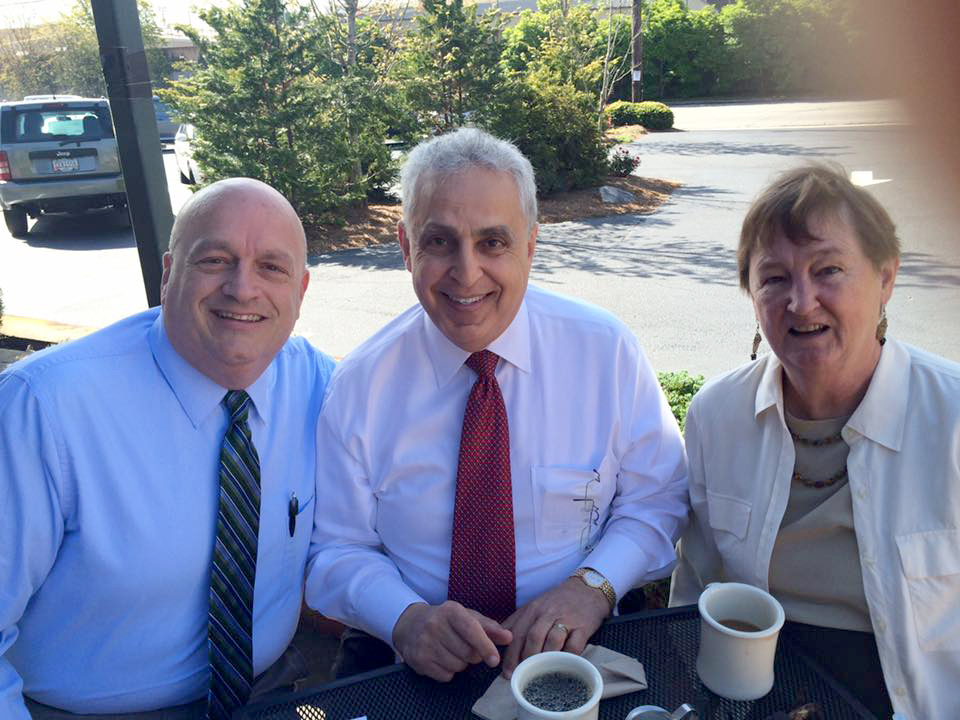Christian churches have a responsibility to work for a lasting peace in the Middle East and advocate for a two-state solution to chronic conflict in the Holy Land, 40 church leaders from various traditions agreed during an April 19-20 summit at the Carter Center in Atlanta.
“As Christian churches, we have a responsibility to take an active role in bringing this chronic conflict to a just peace,” affirmed a summit document signed by participants in Pursuing Peace and Strengthening Presence: The Atlanta Summit of Churches in the USA and the Holy Land. “We also acknowledge and affirm our obligation to continue the prophetic role of the Church, in speaking the truth in love and speaking truth to power.”
The statement followed two days of prayer and dialogue in the first-of-its-kind meeting of Christian church leaders from the United States and Holy Land.
The summit document affirmed a “two-state solution, built on the basis of international resolutions, in which both Israelis and Palestinians can live in neighborly relations and at peace with each other” that “must be viable politically, geographically, economically and socially.”
Participants said the continuing occupation of Palestinian lands beyond 1967 borders must end, calling the expansion of illegal Israeli settlements “a major threat to peace.” The document affirmed Jerusalem as a “shared city with no walls” sacred to Judaism, Christianity and Islam.
The document also recognized the need for churches and church-related organizations “to work together proactively to protect the existing and future presence of Palestinian Christians in the Holy Land.”

Mike Castle, .J Tarazi and Leslie Withers pause between sessions of the Atlanta summit. (Photo/Alliance of Baptists)
GJ Tarazi, a member of Ravensworth Baptist Church in Annandale, Va., who attended the summit representing the Palestinian Christian Alliance for Peace, said the faith leaders “did not all speak the same language about the military occupation and how to respond to the injustices,” which disappointed veterans of Mideast activism.
At the same time, Tarazi, head of the Alliance of Baptists’ community on justice in Palestine and Israel, said the diverse summit created a new “entry point” for getting churches and individuals involved in the peacemaking process for the first time.
Tarazi said for him personally, the highlight of the summit was meeting former President Jimmy Carter, a fellow Baptist.
“At 92 years old, he continues to be energetically working for peace with justice in the Holy Land,” Tarazi said. “Seeing him and hearing his personal stories about his interactions with Israeli and Palestinian leaders and his inspirational words were well worth the frustrations I felt.”
Tarazi said Carter’s keynote challenge “was the crescendo for the entire summit.”
“He enthusiastically endorsed the summit document and told us to be ‘persistent, faithful and aggressive’ in doing justice,” Tarazi said. “I thank President Carter for teaching us how to make lemonade. I am inspired by his faithful and persistent example of doing justice, loving kindness, and walking humbly with his God.”
Officially representing the Alliance of Baptists at the summit were Alliance president Mike Castle and treasurer Leslie Withers. Mitri Raheb, pastor of Christmas Lutheran Church of Bethlehem and an Alliance of Baptists ministry partner, led the planning committee.
In order to move toward a two-state solution, summit participants cited a need to “develop a more effective advocacy” in the United States, educate church members about the need for a peace process that recognizes both Palestinian self-recognition and Israel’s security and peace and urge politicians “to adopt balanced and just positions that would pave the way for, and meaningfully accompany the necessary steps toward, a just and enduring solution of the conflict and a lasting peace.”
Other steps include finding “appropriate ways to exert economic leverage on commercial and governmental actors to end unfair and unjust practices and policies which violate international laws and conventions” and designating “a common day of prayer and reflections across the churches in the USA and the Holy Land to focus all of our prayers on a just and comprehensive peace in Palestine, Israel and the Middle East.”
